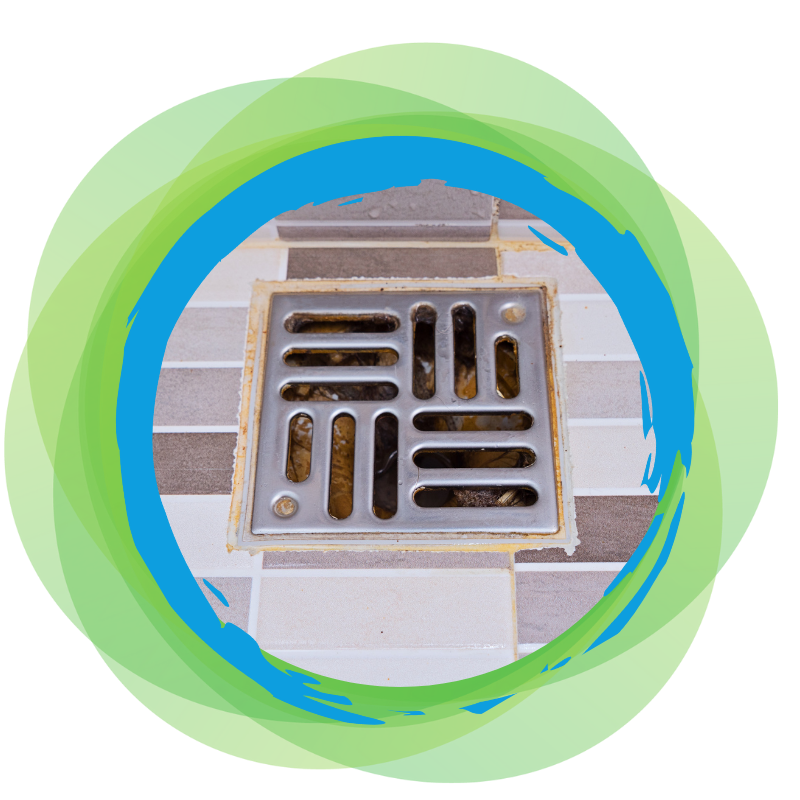A blocked bathroom drain can throw a spanner in your daily routine. Whether it’s a clogged shower drain or a slow-draining sink, these issues are more than just minor annoyances—they can lead to bigger plumbing problems if left unchecked. From water pooling around your feet during a shower to the dreaded smell of stale water, blocked drains are never fun to deal with. You don’t need to be a tradie to get your head around what’s going wrong or how to sort it out. This blog explores practical solutions to identify, fix, and prevent blocked bathroom drains, helping you maintain a smoothly running household.
What causes a blocked bathroom drain to form so quickly?
Blocked bathroom drains often develop faster than you’d expect, especially if your home’s plumbing is already under the pump from daily use. Most of the time, it’s not one single thing but a mix of materials going down the drain day after day.
- Hair accumulation: Hair binds with soap scum and sticks to pipe walls, forming dense clogs.
- Soap residue: Bar soaps, especially the cheaper types, leave behind fatty deposits that narrow the pipe.
- Toiletries, such as shaving cream, moisturisers, and toothpaste, can build up inside pipes.
- Foreign objects: Accidental drops, such as earrings or cotton buds, can easily get lodged.
- Poor water pressure: Weak flow means debris isn’t flushed through properly.
If your bathroom sink is clogged again just weeks after fixing it, chances are one of these issues is bubbling away in the background.
Why do shower and sink blockages keep coming back?
Unblocking a drain once doesn’t always mean the problem’s solved. Repeated issues often point to underlying problems that go unnoticed.
- Incomplete removal: That drain cleaner may have punched a hole through the blockage, not cleared it fully.
- Worn-out pipes: Older plumbing may have internal corrosion or rough surfaces that catch debris.
- Pipe misalignment: Sections of pipe that don’t line up well can slow water flow.
- Shower habits: Rinsing hair dye or using exfoliating scrubs sends more solids down the line.
Ongoing clogs are a warning sign, not just a routine annoyance. If your blocked bathroom drain keeps reappearing, it’s worth digging deeper.
How can ignoring a blocked bathroom drain lead to worse damage?
You might be tempted to let that slow drain slide, but putting it off can land you in hot water—figuratively and literally.
- Water damage: Overflow from a blocked wash basin or shower can seep into walls, skirting boards or cabinetry, warping timber and softening plaster.
- Mould and mildew: Persistent dampness from slow leaks creates the perfect breeding ground for mould, especially in hidden areas.
- Plumbing stress: Clogged sections force water to take longer paths or sit in pipes, increasing pressure and the risk of leaks.
- Sewer exposure: Severe or long-standing clogs can cause wastewater to back up into fixtures, introducing unpleasant odours and unhygienic conditions.
These aren’t just minor inconveniences—they can result in major repair bills and even health issues if they’re ignored.
Can you fix a blocked drain in the bathroom without harsh chemicals?
Absolutely. There are effective, eco-friendly ways to clear a blocked drain without pouring corrosives down your pipes. Here’s how common methods stack up:
| Method | Best Use Case | Notes |
| Plunger | Quick fixes, minor clogs | Works best on partially blocked drains |
| Drain snake | Stubborn clogs, deep blockages | Manual or electric options are available |
| Boiling water | Soap scum and grease buildup | Use cautiously on PVC piping |
| Baking soda & vinegar | Light organic blockages | Reaction loosens debris |
| Enzyme-based cleaner | Hair and organic matter | Safe for pipes, takes several hours |
Keep in mind that while DIY options are great for early-stage clogs, deeper or recurring issues may need a more thorough approach, especially if you’re trying to unblock a shower drain or dealing with a blocked bathroom sink multiple times.
What habits can help keep your bathroom drains clear in the long term?
If you’re sick of reaching for the plunger, it’s time to rethink what’s going down your bathroom drains. Staying on top of good habits can go a long way toward prevention.
- Fit drain guards: These simple mesh covers trap hair and larger debris before they disappear down the pipe, especially useful in showers.
- Rinse thoroughly: After using toothpaste, scrubs, or face masks, follow up with a full flush of hot water to remove residue.
- Watch what goes in: Don’t rinse beard trimmings, sanitary items or oils down the sink—they clump and congeal quickly.
- Use less product: Heavy conditioners and bath oils cling to pipe interiors and attract debris. A smaller amount cleans just as well.
- Flush weekly: A kettle of boiling water, used once a week, helps dissolve early-stage buildup before it becomes a blockage.
If your blocked drain in the bathroom is becoming a repeat visitor, changing how you use the space is often more effective than just reacting after the fact.
How do blocked drains impact your home’s plumbing system overall?
Even a clogged shower drain can ripple out into bigger problems across your home’s plumbing.
- Backups: Clogs can cause water to back up into other fixtures, especially in multi-bathroom households or older pipe systems.
- Water waste: Blocked drains often lead to longer-running taps or repeated attempts to flush waste, which can increase your water bill.
- Pipe deterioration: Slow drainage allows moisture to remain in the system for longer, encouraging rust in metal pipes and bacterial growth in plastic ones.
- Sewer line issues: Local clogs are sometimes the first clue that a main sewer line is starting to fail.
Blocked drains don’t just affect one fixture—they can signal a bigger issue brewing in the system. In these cases, it’s worth taking the time to explore reliable solutions for persistent blocked bathroom drain problems before things get out of hand.
When should you call an expert plumber?
You’ve tried the plunger. You’ve poured the vinegar. And the sink’s still slow. At some point, DIY efforts need to give way to professional expertise. You should reach out if:
- Multiple fixtures are affected at once: This often means a clog in the main drain, not just a local one.
- Water backs up instead of draining, often accompanied by gurgling noises or foul odours.
- There’s a bad smell that won’t go away: Even after cleaning, lingering odours often point to deeper issues.
- Your efforts only work temporarily: If you’re unblocking the same drain every few weeks, something’s not right.
Persistent issues, such as a blocked bathroom drain, often signal a deeper problem within the system. For reliable help that won’t muck you around, consider a helpful walkthrough from Eco Plumbers to get your plumbing appropriately sorted.

